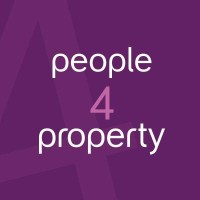Details of each immigration route throughout this document are accompanied by a table to provide an overview of its requirements, conditions and restrictions. If it says ‘yes’ next to a requirement, condition or restriction it means that it does apply. If it says ‘no’ it means it does not. The following explains what the key terms in the tables mean in the context of the immigration routes:
English language
There are a number of immigration routes with an English language requirement for applicants. This may be to support integration and/ or to demonstrate they have the English language ability needed for that particular route. The level of English language ability required is set as appropriate for each relevant route based on the Common European Framework of Reference for languages. See paragraphs 22-25 for more information.
Immigration Skills Charge
This is a charge paid by a UK employer for each skilled migrant worker they employ through the Skilled Worker and Intra-Company Transfer routes. See the information in paragraph 21.
Immigration Health Surcharge
This is a charge paid by the applicant upfront for the duration of their stay. It gives them free access to NHS services on broadly the same basis as British citizens. See the information in paragraph 13.
Maintenance
The majority of migrants coming to the UK from overseas must be able to demonstrate they have sufficient funds to support themselves and their families while in the UK. This is known as the maintenance requirement. Further information on maintenance will be published alongside the Rules and guidance in the Autumn.
Biometrics
If biometrics are required, these are obtained as part of the application process set out in paragraphs 8-10.
Capped
If a route is capped, it means there is a limit on the number of migrants who can come to the UK on that route each year. If it is uncapped there is no limit.
Switching – Routes
Switching in this context refers to a migrant’s ability to stay in the UK on a different immigration route without needing to leave the UK and apply from overseas. Even if the answer is ‘yes’, there will be some routes a migrant cannot switch from – for example, a visitor or short-term visa. For more information see paragraphs 27-29.
Settlement
This is also known as indefinite leave to enter or remain and means a successful applicant can stay in the UK without any immigration conditions or time restrictions. In the tables for specific routes, if there is a ‘yes’ next to a settlement then years that a migrant spends in the UK on the route can count towards the qualifying period for settlement. If there is a ‘no’ this means that any years spent in the UK on that route do not count towards the qualifying period.
Dependants
Dependants are the spouses, partners and children (under the age of 18) of migrants, and in some cases, other family members can also be dependants. If the tables say ‘yes’ next to dependants, it means applicants’ dependants are eligible to accompany or join them in the UK on the route. More information can be found in paragraph 26.
Access to Public Funds
In most cases, migrants are not eligible to access public funds, such as benefits, until they obtain a settlement, though there are some exceptions. Detail of what does and doesn’t constitute public funds can be found on GOV.UK.
Supplementary Work
Supplementary work is when a migrant takes on employment in addition to their primary work hours or study (upon which their permission to be in the UK is based). There are some routes that do not allow supplementary work. For those routes that do, restrictions will apply depending on the route.
![]()





